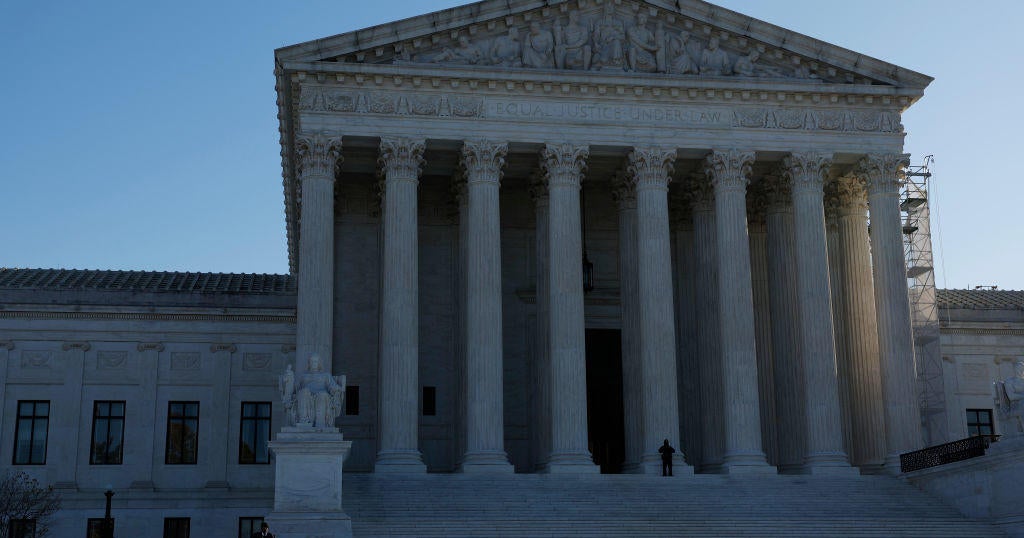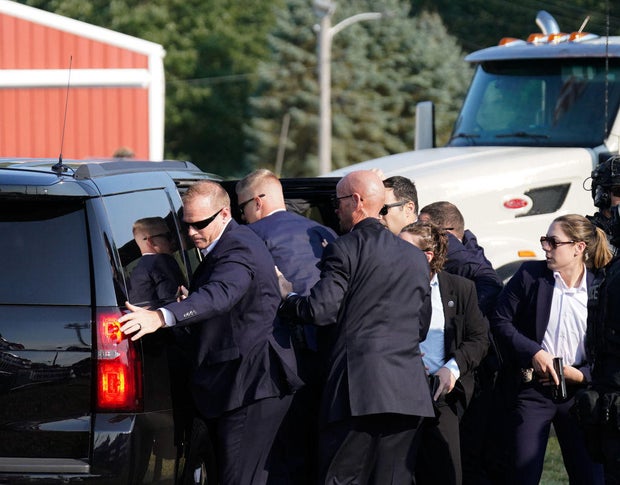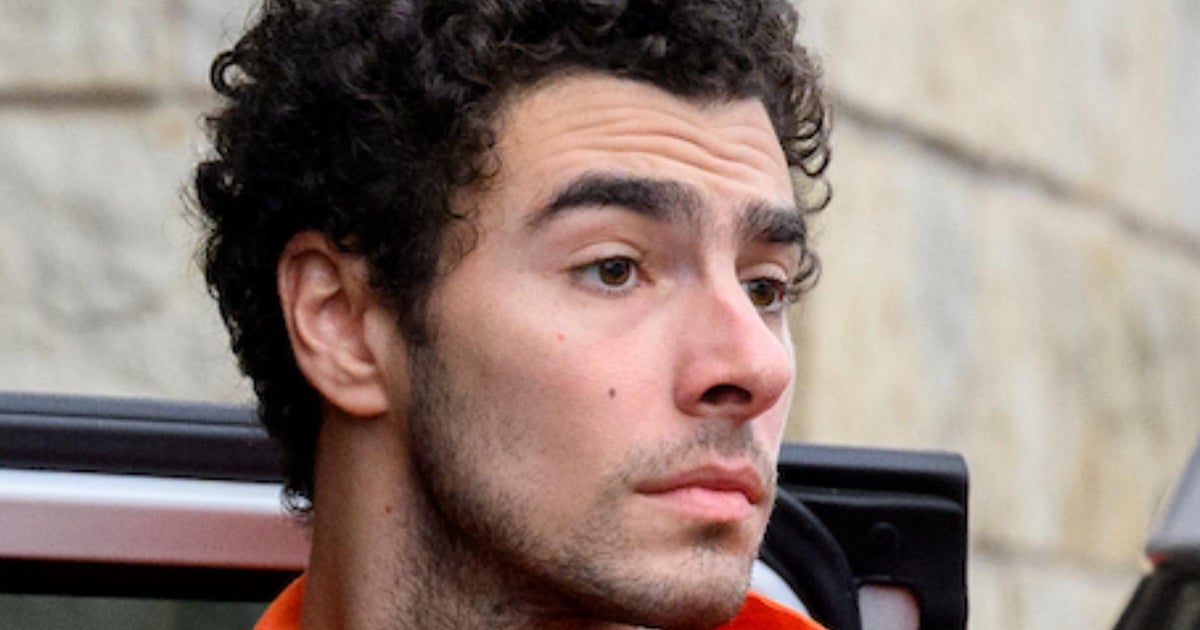CBS News
Independent panel investigating Trump rally shooting warns of “deep flaws” in Secret Service, calls for “fundamental reform”

Washington — An independent panel tasked with reviewing the July assassination attempt against former President Donald Trump in Butler, Pennsylvania, found the Secret Service suffers from “deep flaws” that enabled the attack at the Trump campaign rally, and called for the agency to undergo “fundamental reform” to carry out its mission of protecting top government officials around the world.
Findings from the panel were made public in a report released Thursday. In a letter accompanying the report signed by all four of its members, the independent review panel said it identified in the course of its investigation “numerous mistakes” that led to the attempted assassination against Trump, but also “deeper systemic issues that must be addressed with urgency.”
“The Secret Service as an agency requires fundamental reform to carry out its mission,” the members said. “Without that reform, the Independent Review Panel believes another Butler can and will happen again.”
The panel dedicated its work to Corey Comperatore, who was killed in the shooting, and James Copenhaver and David Dutch, who were injured, as well as their families.
In its review, the members identified six failures related to the attack at the July 13 rally: the absence of personnel to secure the so-called AGR building, whose roof gunman Thomas Matthew Crooks fired from; the failure to address the line-of-sight threat posed by the building; communication issues between the Secret Service and local law enforcement; the failure of the Secret Service or law enforcement to encounter the shooter even though he was spotted more than 90 minutes before opening fire; the failure to inform the leaders of Trump’s detail about the gunman; and the failure to detect a drone the gunman operated hours before the shooting.
The group also pointed to “deeper concerns” it found about the Secret Service, including what it said was a “lack of clarity” over who has security ownership of a protectee’s site, “corrosive cultural attitudes” about resources; and a “troubling lack of critical thinking” by Secret Service employees in the days before and after the assassination attempt.
It faulted Secret Service leadership for what the panel said was a failure to take ownership of security planning and execution at the Butler rally and an “insufficiently experienced-based approach” by Trump’s detail about the selection of agents to perform security-critical tasks.
The breakdowns “reveal deep flaws in the Secret Service, including some that appear to be systemic or cultural,” the report said.
To mitigate the issues identified by the panel, it called for new Secret Service leadership with experience outside the agency and a refocusing on its “core protective mission.”
“The Secret Service must be the world’s leading governmental protective organization,” the report states. “The events at Butler on July 13 demonstrate that, currently, it is not.”
Numerous shortcomings identified
The report walks through the planning leading up to the rally on July 13, beginning with a kickoff meeting hosted by the Secret Service for state and local law enforcement on July 8, and the events in the run-up to when the gunman fired eight rounds from a semi-automatic rifle before he was killed by a Secret Service countersniper.
Jabin Botsford/The Washington Post via Getty Images
The site agent assigned by Trump’s detail to coordinate with the Pittsburgh field office to conduct site advance work and security planning for the Butler rally graduated from the Secret Service’s academy in 2020, the panel said, and joined the former president’s detail in 2023. The report also said the site agent engaged in “minimal” site advance work or security planning.
The panel said the failure to secure the AGR building, its roof and others in the area represents a “critical security failure” and noted that there were available personnel to secure it.
In identifying communications issues between the Secret Service and local and state law enforcement, the panel said there were “inconsistent and varying approaches” to the methods of communication, with a “chaotic mixture” of radio, cell phone, text and email used by different personnel at different points.
The panel also noted that in the 90 minutes that elapsed from when the gunman was first spotted by a local countersniper who was going off-duty to when he began shooting, the gunman was never questioned despite being seen with a range finder.
“The particular combination of repetitive suspicious behavior in a close-in location, the possession of a range finder and its use to range the stage, and only intermittent visual contact with him (in other words, Crooks was not being continuously monitored and surveilled) represents information that should have triggered a police or other law enforcement encounter, and such an encounter likely would have averted the subsequent sequence of events,” its report said.
Three Secret Service personnel were made aware that the gunman was on the roof of the AGR building in the two minutes before he opened fire, the report stated, and a fourth agent was told in that same period that he was on the roof. But the panel said the leadership of Trump’s detail was never told about Crooks.
Secret Service’s reaction sharply criticized
The independent review panel lambasted Secret Service personnel for what it said was a lack of self-reflection in the wake of the assassination attempt.
“July 13 represents a historic security failure by the Secret Service which almost led to the death of a former president and current nominee and did lead to the death of a rally attendee,” the report stated. “For personnel involved, given the multi-factor nature of the security failure, even a superficial level of reflection should yield insights regarding lapses and potential remediations. But many personnel struggled to identify meaningful examples of either type of observation — what went wrong and what could be done better in the future to prevent a similar tragedy from reoccurring.”
Panel members said they identified complacency among Secret Service employees they spoke to and said new agency leadership will need to inspire agents to “be elite and flawless.”
Release of the panel’s findings comes as some members of Congress have called for increases in the Secret Service budget. Its acting director, Ronald Rowe, has also warned that the agency has “finite resources” that it is stretching to “their maximum.”
The outside review found that while more resources would be “helpful,” lessons from the assassination attempt will be lost if the conversation surrounding the security failures devolves into a discussion about Secret Service funding.
“The failure of July 13 likely would have occurred regardless of budget levels at the current Secret Service,” the report found. “Put otherwise, even an unlimited budget would not, by itself, remediate many of the causes of the failures on July 13.”
The four-member panel was formed at the direction of President Biden and conducted its examination of the attack from early August through early October. The panel consisted of Mark Filip, former deputy attorney general; David Mitchell, a longtime law enforcement officer; Janet Napolitano, former secretary of Homeland Security; and Frances Townsend, former assistant to President George W. Bush for Homeland Security and Counterterrorism.
During the span of its investigation, members conducted 58 interviews with Secret Service employees and federal, state and local law enforcement. The panel collected and reviewed more than 7,000 documents, it said in its report.
Ramifications continue to unfold
The assassination attempt at Trump’s rally in Butler led to substantial scrutiny of the Secret Service, which faced questions about how the shooter was able to gain access to a roof so close to where the former president was speaking.
A five-page summary of the Secret Service’s report on the attempted assassination released last month blamed the security lapse on multiple communication deficiencies among law enforcement at the rally site and a “lack of due diligence” by the agency.
In addition to the Secret Service and FBI investigations, several congressional committees and a bipartisan task force are probing the attack.
The FBI previously revealed that the gunman flew a drone near the site of the campaign event roughly two hours before he began shooting and was livestreaming footage from it for about 11 minutes. Investigators said they recovered the drone and two explosive devices from the gunman’s car, as well as a third explosive device from his residence.
The gunman also conducted a Google search for “how far away was Oswald from Kennedy” one week before the shooting, the FBI found, a reference to Lee Harvey Oswald, the assassin who shot and killed President John F. Kennedy in 1963.
The assassination attempt on Trump, and the criticism of the Secret Service that followed, led to the resignation of Kimberly Cheatle, who headed the agency at the time of the attack. Rowe is now serving as the Secret Service’s temporary leader.
Concerns about the agency’s ability to protect Trump grew again last month after a Hawaii man, armed with a semiautomatic rifle, was arrested after he was spotted by a Secret Service agent in the brush along the fence line at Trump’s golf club in West Palm Beach, Florida, where the former president was playing.
The suspect, identified as Ryan Wesley Routh, was charged with three violations of federal firearms laws, assaulting a federal officer and attempted assassination of a presidential candidate. He pleaded not guilty to all five counts.
The two incidents targeting Trump led the Secret Service to boost its protection for the major presidential and vice presidential candidates.
CBS News
What to know about the charges in UnitedHealthcare CEO’s killing

Watch CBS News
Be the first to know
Get browser notifications for breaking news, live events, and exclusive reporting.
CBS News
Prominent pro-Putin ballet star Sergei Polunin says he’s leaving Russia

Moscow — Former Royal Ballet star Sergei Polunin, famous for his tattoos of Russian President Vladimir Putin, on Wednesday announced that he plans to leave Russia. The Ukrainian-Russian dancer was one of the most prominent stars who backed Russia’s unilateral 2014 annexation of Crimea and its military assault on Ukraine. He was rewarded with prestigious state posts.
In a rambling, misspelled message on his Instagram account, Polunin wrote: “My time in Russia ran out a long time ago, it seems at this moment that I have fulfilled my mission here.”
The post first appeared Sunday on his little-read Telegram account.
Ian Gavan/Getty
Polunin, 35, did not give a specific reason for leaving but said that “a time comes when the soul feels it is not where it should be.”
He said he was leaving with his family — his wife Yelena and three children — but “where we will go is not clear so far.”
In the summer, the dancer complained of a lack of security and said he was being followed.
Polunin, who was born in Ukraine, backed Putin’s 2014 annexation of Crimea — a prelude to the ongoing, full-scale invasion of Ukraine that Putin launched in February 2022.
The dancer was granted Russian citizenship in 2019. He was appointed acting head of a dance academy in occupied Crimea’s biggest city, Sevastopol, and director of the city’s opera and ballet theatre, for which a large new building is under construction.
Just last year he was decorated by Putin for his role in popularizing dance. But in August he was replaced as head of the dance academy by former Bolshoi prima Maria Alexandrova, and a week ago, Russia’s arts minister Olga Lyubimova announced his theater director job would go to singer Ildar Abdrazakov.
This came after on December 9 Polunin published a social media post saying he was “very sorry for people” living in the heavily bombarded village near Ukraine’s city of Kherson, where his family originates from, and that “the worst deal would be better than war.”
Ian Gavan/Getty
Aged 13, Polunin won a scholarship to train at the Royal Ballet School in London and became its youngest ever principal dancer.
With his tattoos — including a large depiction of Putin’s face emblazoned prominently on his chest — and his rebellious attitude, he became known as the “bad boy of ballet” and caused a sensation by resigning from the Royal Ballet at the height of his fame in 2012.
Later he made a 2015 hit video to Irish musician Hozier’s song “Take Me to Church” and was the star of a 2016 documentary called “Dancer.”
He moved to perform at Moscow’s Stanislavsky Musical Theatre’s ballet before launching a solo career, starring in dance performances in roles including the mystic Grigory Rasputin.
In 2019 he posed for AFP with a large tattoo of Putin on his chest which he later supplemented with two Putin faces on either shoulder. He also has a large Ukrainian trident on his right hand.
This year he took part in Putin’s campaign for reelection as a celebrity backer.
CBS News
Supreme Court takes up South Carolina’s effort to defund Planned Parenthood

Washington — The Supreme Court on Wednesday agreed to consider South Carolina health department’s effort to cut off funding from Planned Parenthood because it performs abortions, wading into another dispute over access to the procedure in the wake of its reversal of Roe v. Wade.
The case, known as Kerr v. Edwards, stems from the state’s decision in 2018 to end Planned Parenthood South Atlantic’s participation in its Medicaid program. Gov. Henry McMaster, a Republican, directed the South Carolina Department of Health and Human Services to deem abortion clinics unqualified to provide family planning services and end their Medicaid agreements.
Planned Parenthood operates two facilities in the state, one in Charleston and the other in Columbia, and provides hundreds of Medicaid patients with services like physicals, cancer and other health screenings, pregnancy testing and contraception. Federal law prohibits Medicaid from paying for abortions except in cases of rape or incest, or to save the life of the mother.
Planned Parenthood and one of its patients, Julie Edwards, sued the state, arguing that cutting off its funding violated a provision of the Medicaid Act that gives beneficiaries the right to choose their provider.
A federal district court blocked South Carolina from ending Planned Parenthood’s participation in its Medicaid program, and a U.S. appeals court upheld that decision, finding that Edwards could sue the state to enforce the Medicaid Act’s free-choice-of-provider requirement.
The legal battle has already been before the Supreme Court in the past, with the high court last year ordering additional proceedings after deciding in a separate case that nursing home residents could sue their state-owned health care facility over alleged violations of civil rights.
After reconsidering its earlier decision, the three-judge appeals court panel ruled unanimously in March that Edwards’ lawsuit against the state could go forward and said South Carolina couldn’t strip Planned Parenthood of state Medicaid funds.
“This case is, and always has been, about whether Congress conferred an individually enforceable right for Medicaid beneficiaries to freely choose their healthcare provider. Preserving access to Planned Parenthood and other providers means preserving an affordable choice and quality care for an untold number of mothers and infants in South Carolina,” Judge Harvie Wilkinson wrote for the 4th Circuit panel.
South Carolina officials asked the Supreme Court to review that decision, marking the third time the case has been before the justices. The justices agreed to take up the question of whether “the Medicaid Act’s any-qualified provider provision unambiguously confers a private right upon a Medicaid beneficiary to choose a specific provider.”
South Carolina is among the more than two dozen that have passed laws restricting access to abortion in the wake of the Supreme Court’s June 2022 decision reversing Roe v. Wade. In South Carolina, abortion is outlawed after six weeks of pregnancy with some exceptions.
Several states have also enacted laws blocking Planned Parenthood from receiving Medicaid funding, including Arkansas, Missouri, Mississippi and Texas.











